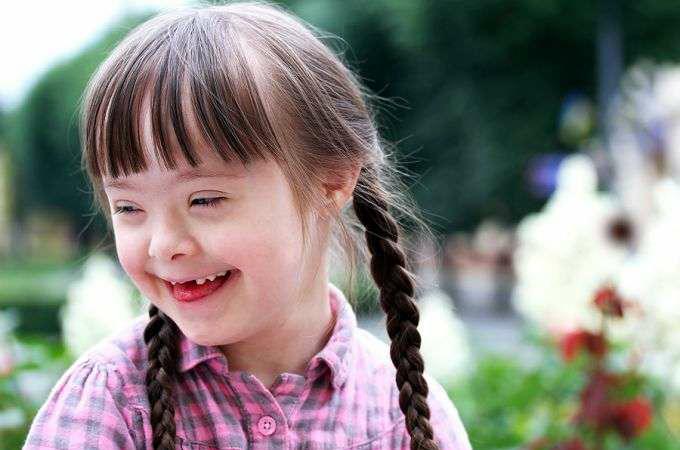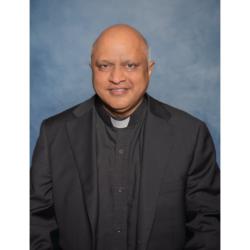Iceland is 'eradicating' Down syndrome...by aborting everyone who has it
Reykjavik, Iceland, Aug 16, 2017 CNA/EWTN News.- A recent article from CBS News proclaims that “few countries have come as close to eradicating Down syndrome births as Iceland.”
The operative word here is “births.”
Has Iceland discovered, through some groundbreaking technology and research, a cure to the chromosomal abnormality? No.
How do you “disappear Down syndrome” then, as one of the article’s taglines states?
You “disappear” people with Down syndrome.
“Iceland isn't actually eliminating Down syndrome. They're just killing everybody that has it. Big difference,” tweeted actress Patricia Heaton, who has been outspoken about her pro-life beliefs.
“There is nothing to celebrate in Iceland's ‘eradication’ of babies born with Down syndrome through abortion,” stressed Jor-El Godsey, president of Heartbeat International, a network of 1,800 pro-life crisis pregnancy centers that counsel women and connect them with resources throughout the country.
“These are precious human beings hand-crafted in the image of God, and no government or person on earth has the authority to rob persons with Down syndrome of their lives,” Godsey told CNA. “Down syndrome is not a death sentence, and it is monstrous to suggest otherwise.”
Every pregnant woman in Iceland is given an option of a prenatal test that can detect Down syndrome with 85 percent accuracy. “Nearly 100 percent” of pregnancies that tested positive for Down syndrome were aborted, CBS reports.
While prenatal testing is not required in Iceland, healthcare providers tell every pregnant woman that the test is an option. The country, which has a population of 330,000, usually sees only one or two children a year born with Down syndrome – often the result, the article reports, of faulty testing.
Other countries “aren't lagging too far behind” in Down syndrome abortion rates, the article states. “The United States has an estimated (abortion) rate for Down syndrome of 67 percent (1995-2011); in France it's 77 percent (2015); and Denmark, 98 percent (2015).”
The CBS article included some discussion of the ethical dilemmas that prenatal screening and abortion of babies with Down syndrome present.
Geneticist Kari Stefansson said for the piece, “My understanding is that we have basically eradicated, almost, Down syndrome from our society – that there is hardly ever a child with Down syndrome in Iceland anymore.”
But when asked what this means for society, he cautioned: “It reflects a relatively heavy-handed genetic counseling. And I don't think that heavy-handed genetic counseling is desirable…You're having impact on decisions that are not medical, in a way.”
“I don't think there's anything wrong with aspiring to have healthy children, but how far we should go in seeking those goals is a fairly complicated decision,” he said.
The article also admits that while people born with Down syndrome are at risk for various other health problems, many people with Down syndrome also live full and healthy lives, and are able to live independently or semi-independently, hold jobs, and have relationships.
“Many people born with Down syndrome can live full, healthy lives, with an average lifespan of around 60 years.”
Perhaps the best argument against the eradication of Down syndrome is Augusta, the cute little seven-year-old pink-clad girl peering out from the pages of the CBS article. Her mother, Thordis Ingadottir, took the test when she was pregnant with Augusta, but it failed to detect Down syndrome.
Now, Ingadottir has become an advocate for people with Down syndrome.
“I will hope that she will be fully integrated on her own terms in this society. That's my dream,” Ingadottir told CBS. “Isn't that the basic needs of life? What kind of society do you want to live in?”
Godsey told CNA that parents whose children have Down syndrome or other genetic abnormalities need love and support – not abortion.
“(These parents)...deserve love and support that will benefit their growing families, and abortion fails categorically to deliver on its false promises to benefit families, individuals and society as a whole,” he said.
Godsey added that almost anyone who knows someone with Down syndrome would be completely against its elimination.
“As anyone who knows a person with Down syndrome can tell you, these beautiful people are an absolute joy to their families and communities. The world grows exponentially poorer as we kill innocent babies for the ‘crime’ of failing to match up to our self-aggrandizing expectations.”
The joy of life with a family member who has Down syndrome was celebrated CBS in a different article, published to mark World Down Syndrome Day in 2015. It was a column by Marguerite (Maggie) Reardon, a senior writer at CNET, about when she found out her daughter would be born with Down syndrome.
For a long time, she considered abortion, though her husband was against it. What changed her mind was the day she found a community of other people with Down syndrome and parents of children with Down syndrome.
She’s still an exhausted, stressed out parent, she wrote, but that’s not because her child has Down syndrome. It’s because she has two little kids who keep her busy.
“It's true my daughter has some developmental delays. And she receives a bevy of therapies through Early Intervention to help keep her on track,” she said.
“But she's also wonderful. She has a twinkle in her eye and an infectious grin that makes even the most miserable looking people on the subway smile when she stares them down. When she puts her head on my shoulder as I rock her to sleep each night, my heart melts no matter what kind of day I've had.”
“I do think she is more special than other children, but it's not because she has Down syndrome. It's because I'm a completely biased and doting mother who thinks no one could possibly be as adorable, bright or funny as my own child,” she wrote. “And her name is Margot.”



















